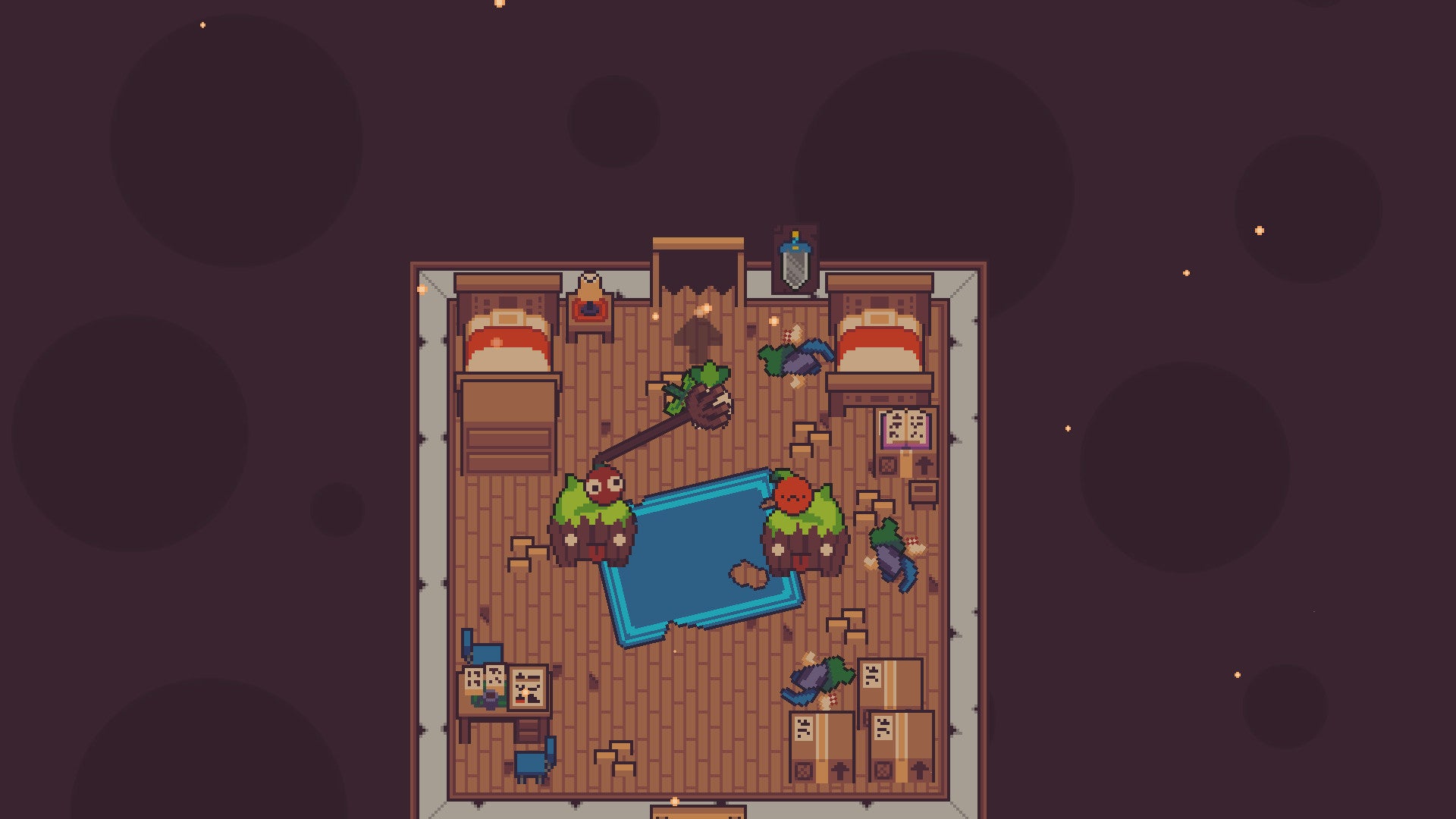It rarely works that way with video games, I suspect. And this has rarely been more obvious than when I sat down to play Turnip Boy Commits Tax Evasion this afternoon. Here is a top-down Zelda-alike, I had been told, that I could see off in an hour or two. And it was true - two hours and done, although there was plenty left to go back to. I felt slightly bad about it, though. I suspect Turnip Boy took a relative age to put together. I should say this now: it’s a wonderful game, witty, playful, and scrupulously true to Zelda traditions. You’re a turnip with a huge tax bill, and so you set out across a compact world to get yourself out of trouble. I won’t spoil the plot, but the pleasure of these games lies with familiarity, I think, and there’s a lot of familiarity outside of the plot. Fetch quests, bosses that break up the adventuring, dungeons, mazes, items that allow you to access places you could see but couldn’t get to before. All that wonderful jazz. Because I was blasting through it all - because it has a reputation as a game that you can blast through - I did keep thinking about the asymmetry of the relationship, though. It made me appreciate afresh the effort that goes into this stuff. How much time to design out and build the graveyard section, that I bumbled through in about fifteen minutes? And before all that, how long to conceive of it in the first place, to wander around doing the dishes and waiting at bus stops with this sort of inchoate idea for part of an adventure in your head? Nobody ever comes up with a great idea for the middle of a film - that’s something I was told at university, but which I still think about every now and then. But coming up with ideas for the middle of something is just one of the terrifying skills you need to be able to make a game like Turnip Boy. That and something more: you need to plan, I know, but you also need to allow the idea to run away with you in places. There are parts where Turnip Boy cleaves tightly to the idea of what a Zelda game should be, and moments where it rushes away and seems to be imagining stuff as it goes, laying its own track even as it rushes over it, like Gromit at the end of The Wrong Trousers. These are the kinds of moments I’m after in games - huge productions, even games like this that you can play in a few hours. Productions that require planning and careful thought and precision. All that, and then hopefully the odd moment of flyaway invention too. That’s quite a lot to ask isn’t it? All that and gone in a few delicious hours - but then remembered for weeks, months, years.
